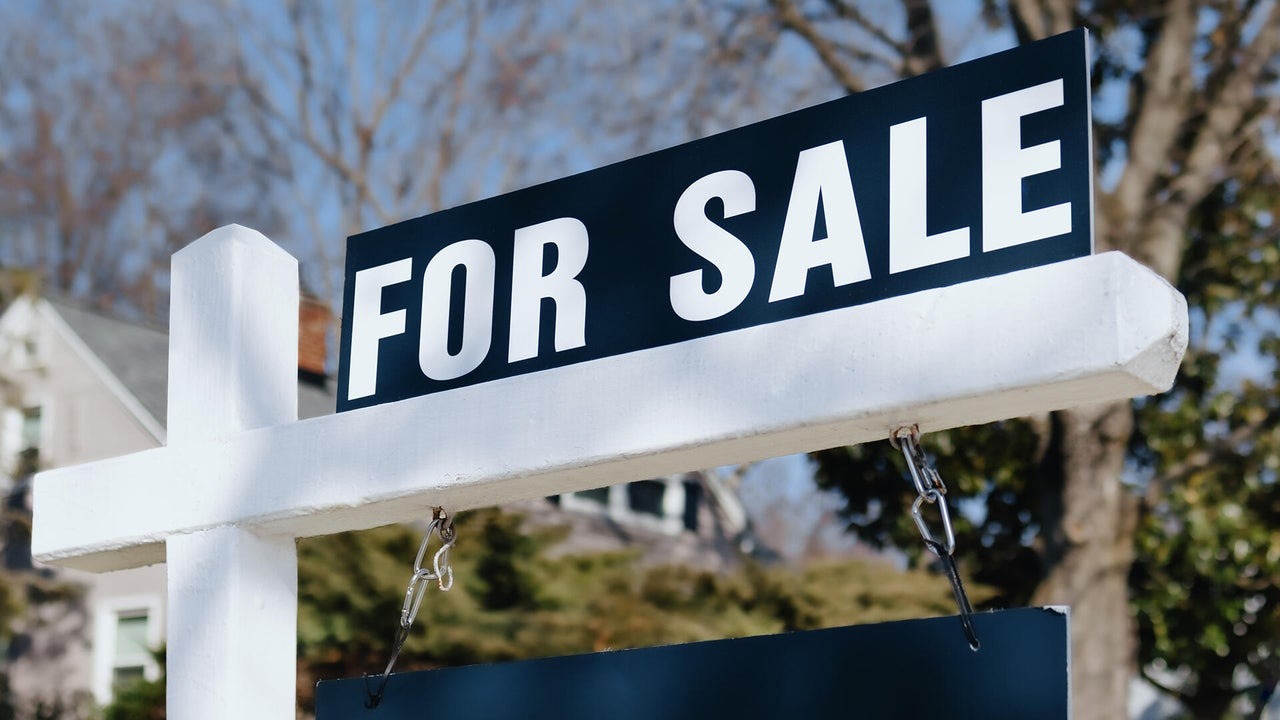President Trump on Tuesday floated the idea of eliminating the federal capital gains tax on home sales — a move that would upend the way real estate profits are taxed for the first time in three decades.
In the Oval Office, Trump suggested he is considering backing legislation introduced by Rep. Marjorie Taylor Greene of Georgia that would abolish the capital gains tax for primary residences. Greene has called the levy “an outdated, unfair burden — especially in today’s housing market, where values have skyrocketed.”
“We’re thinking about that,” Trump told reporters when asked about the proposal. “It would also unleash [the market] just by lowering the interest rates. If the Fed would lower the rates, we wouldn’t even have to do that. But we are thinking about no tax on capital gains on houses.”
Current law and its limits
Under current tax rules, homeowners can exclude up to $250,000 in profits from the sale of a primary residence if they file as single, and $500,000 if filing jointly. Those thresholds, set in 1997, have never been adjusted for inflation — meaning more and more homeowners are hitting the limits.
The National Association of Realtors (NAR) has long argued that the policy distorts the market by discouraging older homeowners from selling, a phenomenon it calls the “stay-put penalty.” NAR research shows that 34% of homeowners — about 29 million Americans — would exceed the $250,000 exemption if they sold today, while 10% would surpass the $500,000 joint filer threshold.
That, advocates say, keeps seniors from downsizing or moving closer to family, while limiting much-needed housing inventory. “This stagnation in housing turnover is rippling through the entire market, driving up costs and limiting opportunity,” said Shannon McGahn, NAR’s executive vice president and chief advocacy officer.
Who would benefit?
Greene argues her No Tax on Home Sales Act would unlock billions in home equity, ease the housing shortage, and improve financial security for families. Critics, however, contend that abolishing the tax would disproportionately benefit wealthier Americans who own homes that have appreciated well beyond the existing thresholds.
Joel Berner, senior economist at Realtor.com, said most sellers already benefit from today’s exclusions. “It wouldn’t really move the needle for a regular family,” Berner told CBS MoneyWatch. “If your home has appreciated by more than $1 million, there would be a benefit to removing the capital gains tax.”
Market impacts and risks
Supporters believe the change could unleash fresh housing inventory by encouraging long-time homeowners to sell. “In particular where inventory is constrained, it could benefit regular folks,” Berner said.
But opponents warn the policy could fuel speculation, inviting more investors into the housing market. Nearly 27% of all homes sold in the first quarter of this year were purchased by investors — the highest share in at least five years, according to BatchData. Removing capital gains taxes might accelerate that trend, further straining affordability for first-time buyers.
The White House declined to elaborate on Trump’s remarks, but with affordability at crisis levels and housing inventory historically low, the debate over capital gains and home sales is likely to intensify in the months ahead.

